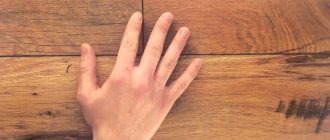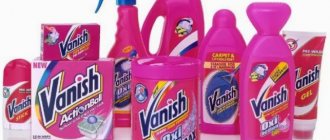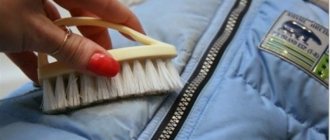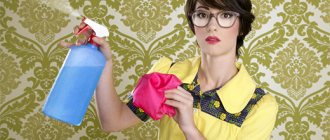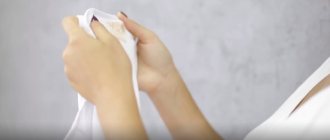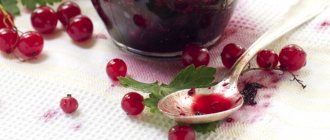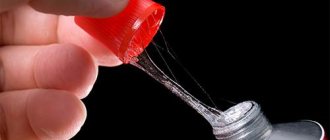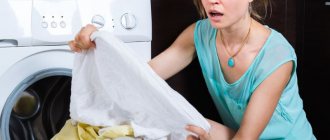How to remove grease stains from wallpaper?
A stain on the wallpaper is a fairly common problem, and every housewife has encountered it at least once in her life. They can appear in the area of a doorway or switches, in the kitchen near the work surface, and even after pasting new wallpaper can be very frustrating with stains appearing. Very simple products that are found in absolutely every home will help you deal with such contaminants - soda, starch, napkins, bread, honey and a brush. A particularly sensitive topic is how to remove grease stains from wallpaper, and you will also learn about this from the article.
How to remove stains from vinyl wallpaper
It is easiest to remove stains from vinyl or non-woven wallpaper. Such wallpaper has water-repellent properties and can be washed with detergents or even soap solution. All you have to do is wet the sponge in the solution and wipe away the dirt. Remove excess moisture with a paper towel. If the sponge doesn't work, use an old toothbrush. Please note that it is easier to clean old stains, since such wallpaper is resistant to grease and sometimes it is enough to wash it with a regular damp cloth.
Remember
- Wipe the wallpaper periodically . To avoid heavy contamination. Don't forget that dust accumulates on the wallpaper all the time.
- Choose the right wallpaper . For example, it is better not to buy paper wallpaper for the kitchen or bathroom, since these rooms are most exposed to pollution and cannot tolerate excess moisture. Look carefully at the icons when purchasing.
- Use suitable methods for cleaning wallpaper . To avoid damaging them, test the product on an inconspicuous piece of wallpaper before cleaning.
How to remove grease stains from paper-based wallpaper
Paper wallpaper, unlike non-woven and vinyl wallpaper, is afraid of water, and therefore we will use other methods to clean it:
Remove grease stains with chalk, as it contains components that can absorb dirt without harming the surface. Chalk should first be crushed into powder, and then sprinkled onto the dirt. After some time, clean the surface and you will see that the wallpaper is as good as new. In order to get this effect faster, you should put the chalk in a cotton cloth or napkin, and then iron the stained area through it.- Soda will also help us. Please note that it should have a gel-like consistency, and for this it is better to mix the powder with water in small quantities. Apply the resulting mixture to a clean, soft cloth, and then gently wipe off the dirt. Continue doing these manipulations until the stain disappears. Remove any remaining baking soda using a napkin.
- An iron will also help in removing stains, and if it is fresh, attach a piece of regular toilet paper or a napkin to it, and then run the iron. Do this until the stain disappears.
Please note that the iron should be set to the minimum temperature so that the paper sheets simply do not peel off.
- Apply a thick layer of the pasty mixture of starch onto the stain, and then leave it overnight. In the morning, use a brush to sweep away the starch, and the dirt will disappear along with it.
- It is possible to remove a grease stain from wallpaper if you apply a small piece of bread to it and rub lightly until the stain disappears.
- It dissolves grease-type contaminants and gasoline well. To do this, soak a soft cloth in flammable fuel, and then remove the excess with a paper towel. For stains that are difficult to remove, a mixture of 0.5 teaspoon of gasoline and 1 tablespoon of starch is perfect. It should be applied to the stain in a thick layer, and after a couple of hours, when the gasoline has evaporated, remove everything with a brush.
- Tooth powder has also proven itself quite well. To do this, it should be diluted in water to create a creamy consistency, and then applied to the stain. We leave everything for a day, and then remove the residue with a dry brush. The powder absorbs fat, and there will be no trace of the stain!
- If the stain is small, a regular eraser will help. The main thing is not to rub the stain into holes.
Important! Use gasoline with extreme caution, as otherwise the wallpaper may lose its color and brightness.
Now that you've learned how to remove grease stains, it's a good idea to learn how to remove other stains from wallpaper.
What is the best way to wash different types of wallpaper?
When wet cleaning, it is necessary to take into account the characteristics of the material from which the finishing cloth is made. Different cleaning methods are used for different types of wallpaper.
Paper
After washing, thin paper sheets can not only lose their attractive appearance, but also come off. You can clean paper wallpaper with a vacuum cleaner or a dry (preferably microfiber) cloth without any effort.
Light stains and fingerprints can be removed with a student's eraser. Paper can only be washed if it is coated with moisture-resistant varnish. The surface is wiped first with a wet and then with a dry cloth. Problem areas can be soaped.
Walls covered with thick wallpaper can be lightly wiped with a well-wrung out soft cloth.
Vinyl
Vinyl-coated canvas can have a paper or non-woven backing. Therefore, it is important to study the markings on the roll. The image of one wave means that the coating has poor moisture resistance; 2 waves – washable; 3 waves – persistent. The image of the wave along with the brush marks the wear resistance and the possibility of cleaning; 3 waves and a brush – especially resistant to cleaning.
The top layer of polyvinyl chloride is resistant to moisture and can be cleaned with detergent solutions.
Washable
Washable types include acrylic, vinyl, metallic, glass wallpaper and wax-coated cork.
It is not recommended to wet even the most durable coating with plenty of water. The canvas may warp; moisture trapped under the wallpaper promotes the growth of mold.
Non-woven
Non-woven fabric is cellulose fibers with the addition of polyester and special impregnation. Compared to paper, it is a more moisture-resistant material. Non-woven wallpaper can be cleaned dry or wet. Durability is marked in the form of wavy lines.
Liquid
The composition of liquid wallpaper includes fibers of cotton, silk, synthetics, cellulose and water-soluble glue. The loose structure quickly becomes saturated with moisture and is easily washed off with water. Walls with this coating can be cleaned with a vacuum cleaner or a dry microfiber cloth. Liquid wallpaper in the kitchen is sometimes covered with aqualac, in which case wet cleaning is possible.
Other
The top layer of natural wallpaper is made from bamboo, cork, straw, reed, veneer or seaweed. Special impregnations protect the material from dust, but when wet, the color is easily lost and the structure is damaged. When cleaning, you can use a vacuum cleaner or a soft bristle brush.
Textile fabric made of silk, linen, cotton or velor has low resistance to dust, dirt and moisture, but they can only be cleaned dry. Photo wallpapers that are not covered with PVC film can be wiped with a dry cloth and only in exceptional cases with a damp cloth.
Yellow spots and ways to deal with them
Most often, yellowness appears on the ceiling, but in some cases the walls also suffer. The reasons for this may be different - faulty communications among neighbors living above, poor quality of wall insulation work, condensation, small pipe leaks in your own apartment. In any case, whatever the reason, damaged wallpaper looks sloppy, sloppy, and this needs to be corrected.
Most often, it is impossible to get rid of such a problem, and therefore you simply have to cover the yellow areas with different materials, new wallpaper, or decorate with something/hang a picture. During repair work, you can try and protect yourself from the appearance of yellowness. Before wallpapering, walls should be treated according to technology, i.e. Clean thoroughly, then level and prime.
If you plan to apply liquid wallpaper, you should carefully follow the manufacturer's recommendations. If yellow stains appear during the process, you should get rid of them, and to do this, use a solution of whiteness and water, in a ratio of 1 to 3, and apply the solution to the area covered with stains. This method is perfect even for colored wallpaper, but it must be completely dry beforehand.
Dark spots
If you have dark spots in your apartment or house, you can’t just leave it like that. Darkened areas indicate that mold is appearing, and this is dangerous to human health. The process of getting rid of such a scourge is long and labor-intensive, and it requires complete removal of the coating. The humidity in the room should be brought back to normal, as well as create normal conditions for ventilation, and ventilate the room more often.
To get rid of mold you need:
- Remove the old wallpaper and clean the walls using sandpaper or a hard brush with metal bristles.
- Wash the walls from dust, and after drying, treat with an antifungal agent.
- Brush everything again, and then rinse the walls with water.
- When the wall is completely dry, you can apply several layers of primer to it, and then stick on new wallpaper.
Please note that everything described above should be carried out in a room that is well ventilated, and it is better to wear a respirator so that the respiratory system is protected.
A few recommendations
To properly wash dirt from the wall, use the following recommendations:
- It is convenient to obtain rich foam for moderately wet cleaning by stirring the detergent with a mixer.
- You should not rub the wallpaper with great zeal: although the coating is resistant to pressure, the base itself may not be able to withstand it.
- Do not wet the joints, otherwise the fabrics will most likely come apart at the seams.
- After treating the surface, do not allow a draft: the wallpaper may peel off.
- Despite the moisture resistance, it is still not recommended to wet the wall finishing generously.
- Repeated washing should be carried out only after the wall surface has completely dried.
When choosing any method of washing wallpaper, try to carry out the treatment carefully so as not to damage its surface and base.
Pink spots
If for some reason pink spots appear on the wallpaper, there can be many reasons:
- The appearance of mold - in this case, the stains may increase and begin to darken over time.
- The walls are covered with vinyl wallpaper - this is usually due to the fact that such wallpaper takes a long time to dry, and for this reason the light may be distorted. Over time, the spots will go away on their own.
- The technology for working with the primer was violated.
- The technology for processing the walls was violated, perhaps the reason was a poorly dried layer of plaster or putty. In this case, you will have to remove the wallpaper and wait until everything dries.
Yes, removing grease stains from wallpaper doesn’t seem like such a difficult task!
First steps
The main rule for successfully combating greasy stains on wallpaper is quick cleaning. Fresh stains are much easier to remove than old ones that have become deeply embedded in the structure.
Before starting work, you need to determine what material the wallpaper is made of. Paper ones do not tolerate moisture and can hardly withstand mechanical stress. On all other materials, you can use damp sponges, cleaning agents and light rubbing.
When starting cleaning, consider the following recommendations:
- if there is wallpaper on the walls that can be painted, you need to focus on the type of paint and select a suitable cleaner for the effect;
- It is advisable to test the chosen method in an area inaccessible to view (behind a sofa, armchair); if the process is successful, you can apply it to the desired area.
Fumigator stain
It often happens that when the records from the device burn out, they begin to leave marks on the wall. Most often you have to figure out how to decorate the wall, or cover this place with the remnants of wallpaper from the renovation. If the mark remains on washable wallpaper, try wiping the stain with a damp cloth. If you're lucky, everything will work out the first time, and if not, it will disappear, but over time, when it burns out.
Stains can appear for various reasons, and before you begin removal, you should determine the source of contamination, and also carefully study the removal instructions
Other types of stains
Ink stains
To remove this type of stain from wallpaper, you will need to prepare a solution of potassium permanganate in powder form and dissolve it in a 70% solution of vinegar essence. Carefully dip a cotton swab into the resulting solution and then apply it to the stain. After 3-5 seconds, streaks will appear from the stain, and they need to be removed using a cotton sponge soaked in hydrogen peroxide.
Organic stains
If you have stains of organic origin on your wallpaper, you should dilute shampoo or liquid detergent with water in a container in a concentration of 1 measure of water and 10 of the product, and then dip a sponge into the solution and wipe the stain, remove any remaining dirt with a soft cloth.
Drawings on wallpaper
How often our beloved children love to draw on the walls! In order to get rid of traces of markers and pens, you should arm yourself with a toothbrush, apply white toothpaste to it and lightly rub the stained areas, and then remove the paste from the wallpaper with a soft cloth. In this case, shaving foam often comes to the rescue.
Oil stains
To remove oil stains, use a soft cloth and gasoline. Afterwards, blot the cleaning area with a dry cloth.
Dirt
You can remove dirt stains, even in hard-to-reach places such as wallpaper near switches, and use a regular eraser to do this.
